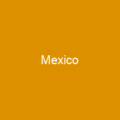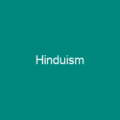Exploring the Enigmatic Land of Chad
Imagine a vast, sprawling land where history whispers through the sands and modernity struggles with ancient traditions—welcome to Chad.
The Geography of Challenges
Chad is a country that defies easy categorization. It’s like a puzzle piece, fitting into the map of Africa but standing out in its unique blend of landscapes. From the Sahara desert’s harsh beauty to the lush Sudanian Savanna, Chad’s geography tells a story of resilience and adaptation.
Water and Wildlife
Can you imagine Lake Chad as a giant mirror reflecting the sky? This second-largest wetland in Africa is not just water; it’s life. It supports diverse wildlife, including elephants, lions, and countless bird species. Yet, its waters are shrinking, mirroring the challenges faced by this land.
The People of Diversity
Chad is a melting pot of cultures, with over 200 ethnic groups calling it home. It’s like a vibrant tapestry where each thread represents a unique story and tradition. The country’s rich linguistic diversity adds another layer to its cultural mosaic.
Religion and Belief
How do you navigate the complex religious landscape of Chad? Islam, Christianity, and indigenous beliefs coexist here, creating a dynamic interplay that shapes daily life and societal norms. The constitution guarantees freedom of religion, but the reality on the ground is often different.
The History of Struggle
Chad’s history is a tale of conquests and conflicts. From the 7th millennium BC to the present day, the country has seen empires rise and fall, colonial powers impose their will, and internal strife tear at its fabric.
Colonialism and Independence
How did Chad become a French colony in 1900? And what was the impact of World War II on its path to independence in 1960? The story is one of struggle, resilience, and finally, liberation. But freedom came with its own set of challenges.
The Current State of Governance
Chad’s government is a complex web of power dynamics. The president wields significant influence, but the opposition faces numerous obstacles. Corruption and human rights abuses are persistent issues that continue to plague the nation.
Economic Challenges
How does Chad balance its economic needs with the realities of poverty? Oil has brought some prosperity, but much of the population still lives in dire conditions. The country’s infrastructure is underdeveloped, and access to basic services remains a struggle for many.
Culture and Traditions
Chad’s cultural heritage is as diverse as its people. From traditional music and literature to vibrant festivals, the nation celebrates its rich history through various forms of expression. The government has taken steps to preserve these traditions, recognizing their importance in national identity.
Cuisine and Music
What does a typical Chadian meal look like? Millet balls dipped in sauces are just one part of the culinary landscape. And what about music? Instruments like the kinde and kakaki tell stories that span generations, blending tradition with modernity.
The Future of Chad
Chad faces numerous challenges, but it also has the potential for growth and development. The country is working to improve its infrastructure, education system, and economic policies. With international support and local initiatives, there’s hope for a brighter future.
Conclusion
Chad is a land of contrasts—where ancient traditions meet modern aspirations, where challenges are as vast as the Sahara yet as rich in potential as its cultural heritage. As we look to the future, it’s clear that Chad’s journey is far from over, but with resilience and determination, this enigmatic country can overcome its obstacles and thrive.

You want to know more about Chad?
This page is based on the article Chad published in Wikipedia (retrieved on November 29, 2024) and was automatically summarized using artificial intelligence.







